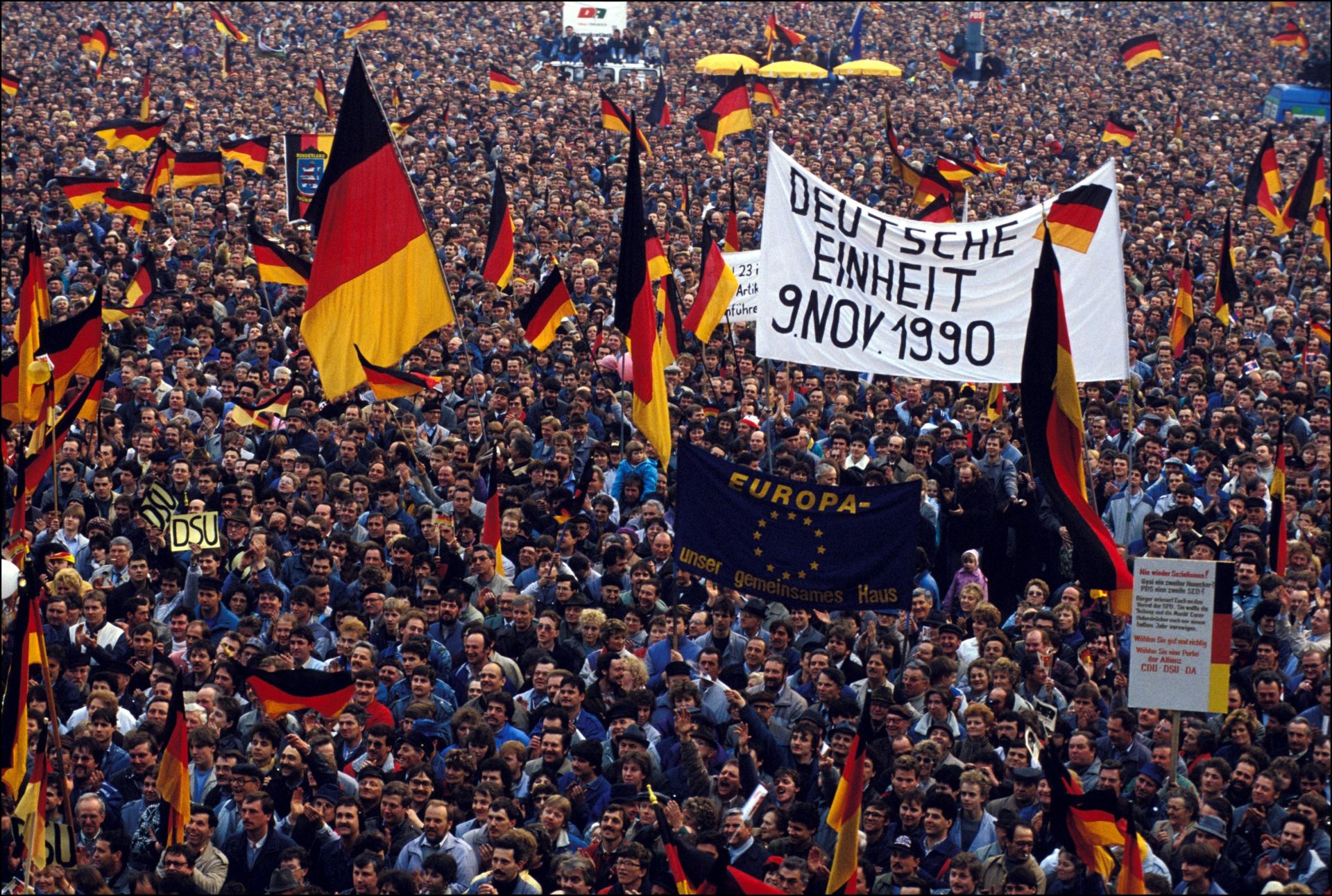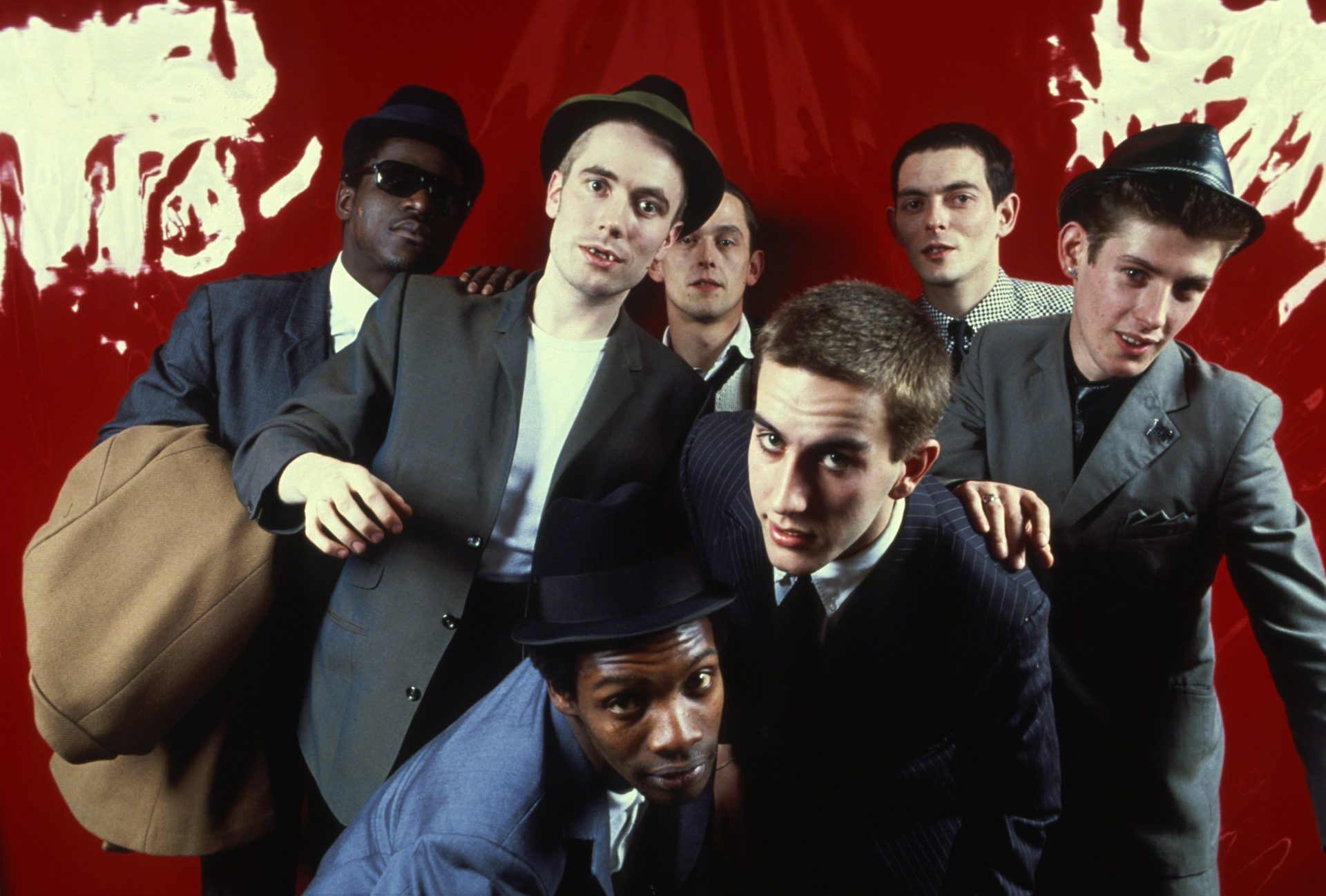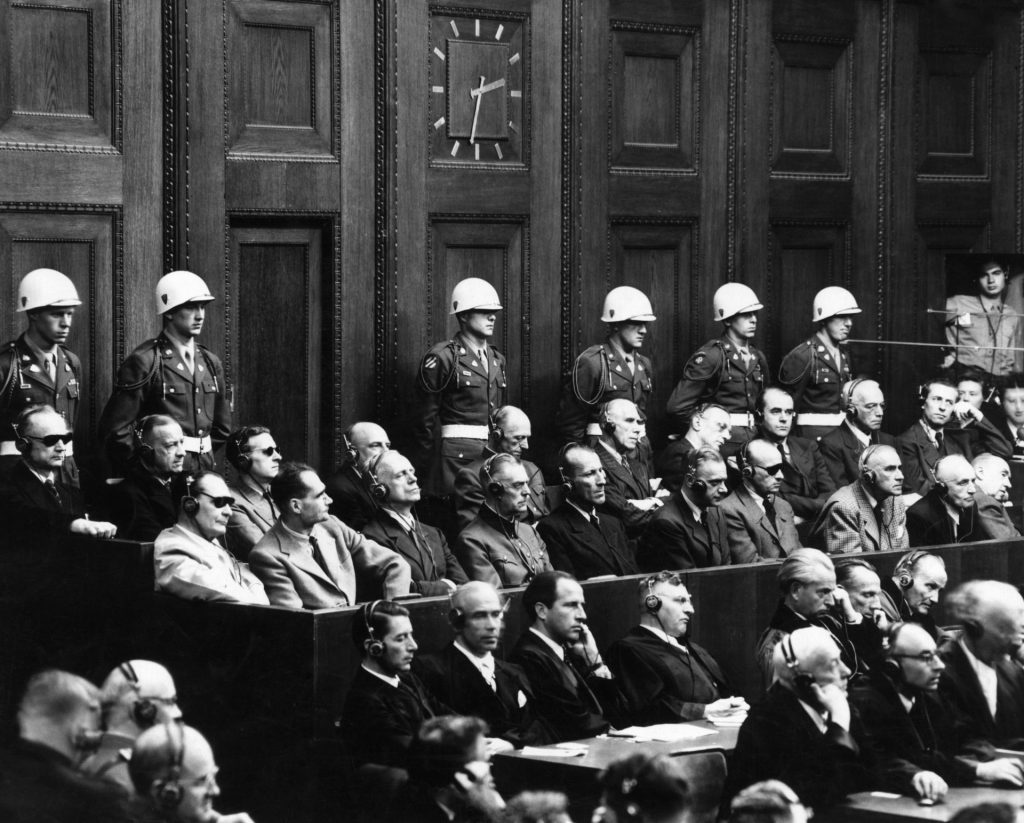
1945
Rebuilding starts of a nation in ruins. The Nuremberg trials of senior Nazi figures get under way; they end the following year with the execution of 10 of the defendants
1947
Thomas Mann publishes Doctor Faustus, reshaping the legend as an allegory for the rise of the Nazi party
1949
Germany is divided into the Federal Republic of Germany, under Konrad Adenauer, right, and communist German Democratic Republic, led by Walter Ulbricht, left
1950s
Start of rapid economic growth in West Germany, a phenomenon known as the Wirtschaftswunder – economic miracle
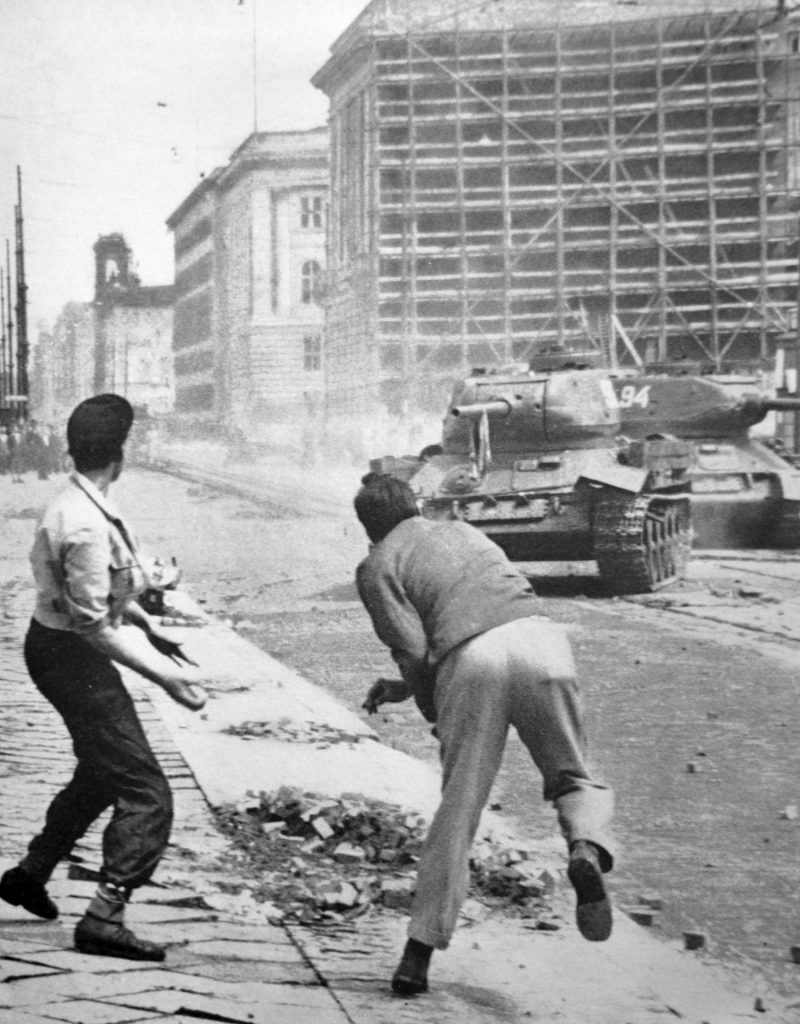
1953
An uprising in East Berlin is suppressed by Soviet tanks
1954
2-0 down after nine minutes to a Hungary team unbeaten in four years, West Germany stage the ‘Miracle of Bern’ to win the World Cup – the first of four won by Die Mannschaft; Mercedes-Benz cause a sensation with their 300SL Gullwing, boasting the first-ever production fuel injection engine
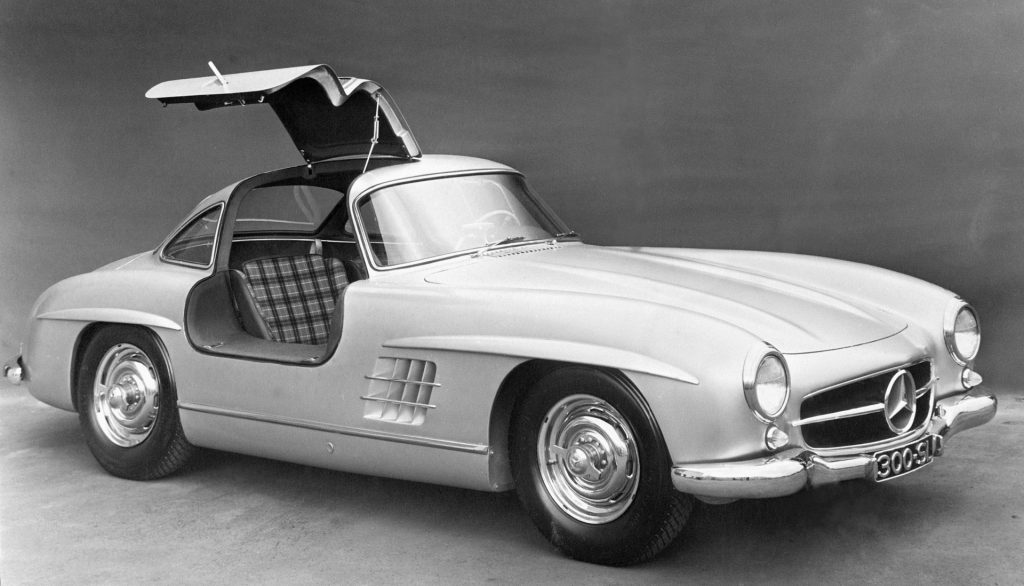
1955
West Germany joins Nato; East Germany joins the Warsaw Pact
1957
West Germany joins the European Economic Community; Adenauer wins the largest-ever victory in a German federal election under the slogan “Keine Experimente” (“No Experiments”) – a motto German post-war politics has mostly stuck to.
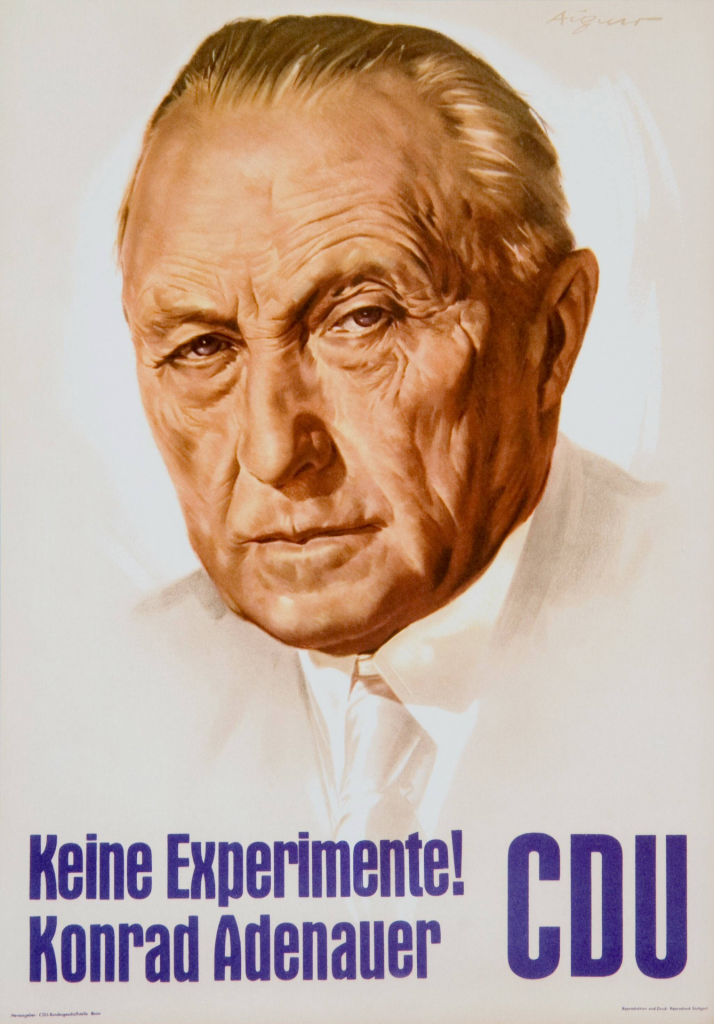
1959
Publication of Gunter Grass’ The Tin Drum. Twenty years later an Oscar-winning film version is produced, and 40 years later Grass wins the Nobel prize for literature
1961
The steady flight of people from East to West leads to the construction of the Berlin Wall. Within days, the first fatality occurs
1963
Porsche launch the 911
1965
Joseph Beuys makes his breakthrough with performance piece How to Explain Pictures to a Dead Hare
1968
Gerhard Richter creates photorealistic painting Cathedral Square, Milan. In 2013 it briefly becomes the most expensive artwork by a living artist, selling for $37.1m
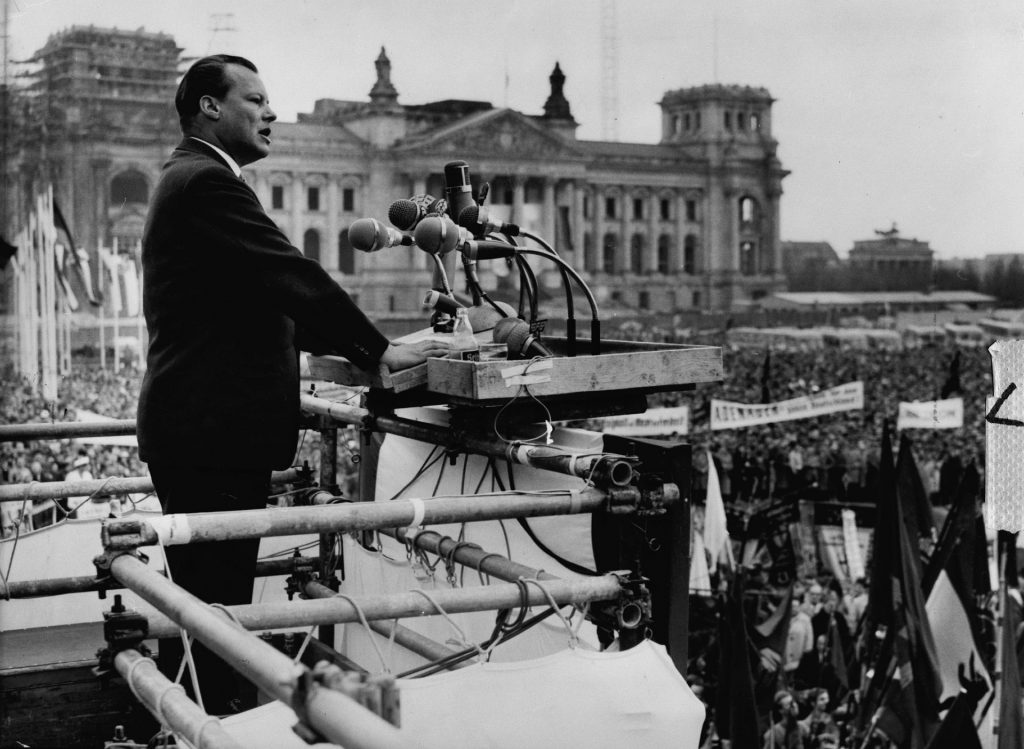
1969
Social Democrat Willy Brandt becomes chancellor and seeks better ties with the Soviet Union and East Germany under Ostpolitik (eastern policy)
1970
First of Uwe Johnson’s four-volume Anniversaries: From a Year in the Life of Gesine Cresspahl is published
1971
Walter Ulbricht is succeeded in the East by Erich Honecker; first use of the term ‘Krautrock’ to describe experimental music produced by German bands including Neu!, Faust and Ash Ra Tempel. Can release their seminal Tago Mago album
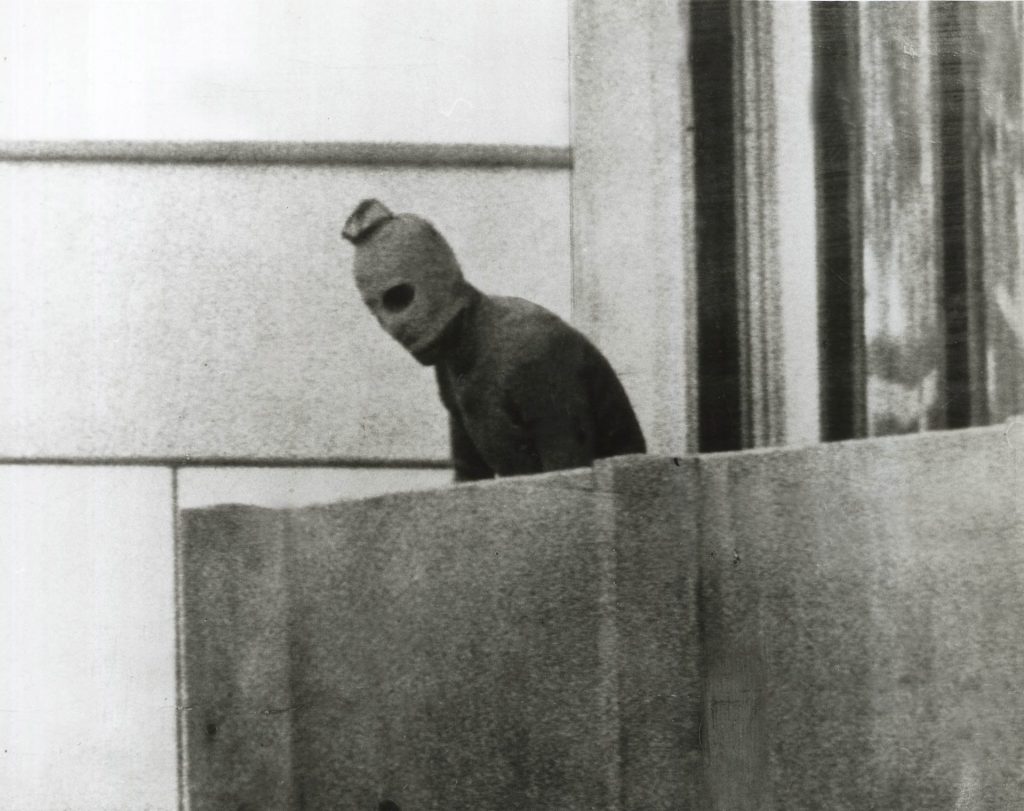
1972
The Olympic Games in Munich – the first in the country since Hitler’s games in 1936 – are marred by Black September’s massacre of Israeli athletes, coaches and officials
1973
East and West Germany join the UN
1974
Brandt resigns after spy revelations surrounding one of his aides. New chancellor Helmut Schmidt continues Ostpolitik; 1974 Kraftwerk’s Autobahn album is a top 10 hit in both the US and UK. West Germany win the World Cup on home soil in Munich. VW launches the Golf, now Europe’s favourite car
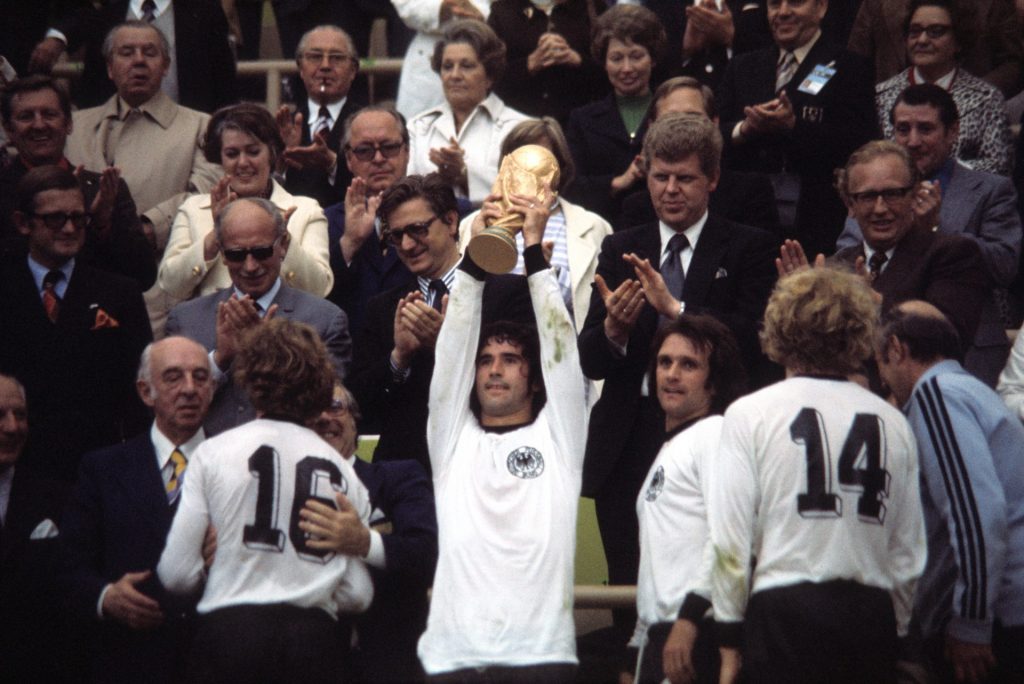
1977
The activities of terror group Rote Armee Fraktion, also known as the Baader–Meinhof Gang, peak in a national crisis known as the ‘German Autumn’ as the organisation carries out a series of killings, kidnappings and hijackings. Producer Giorgio Moroder and Donna Summer create groundbreaking disco single I Feel Love at a studio in Munich. Kevin Keegan joins SV Hamburg from Liverpool, winning the Ballon d’Or in two of his three seasons
1978
Boney M. – the project of producer/singer/songwriter Frank Farian, with hired Afro-Caribbean performers, release hit-packed album Nightflight To Venus
1979
First use of the term ‘Neue Deutsche Welle’, which broadens to include artists as diverse as D.A.F., Trio and Nena
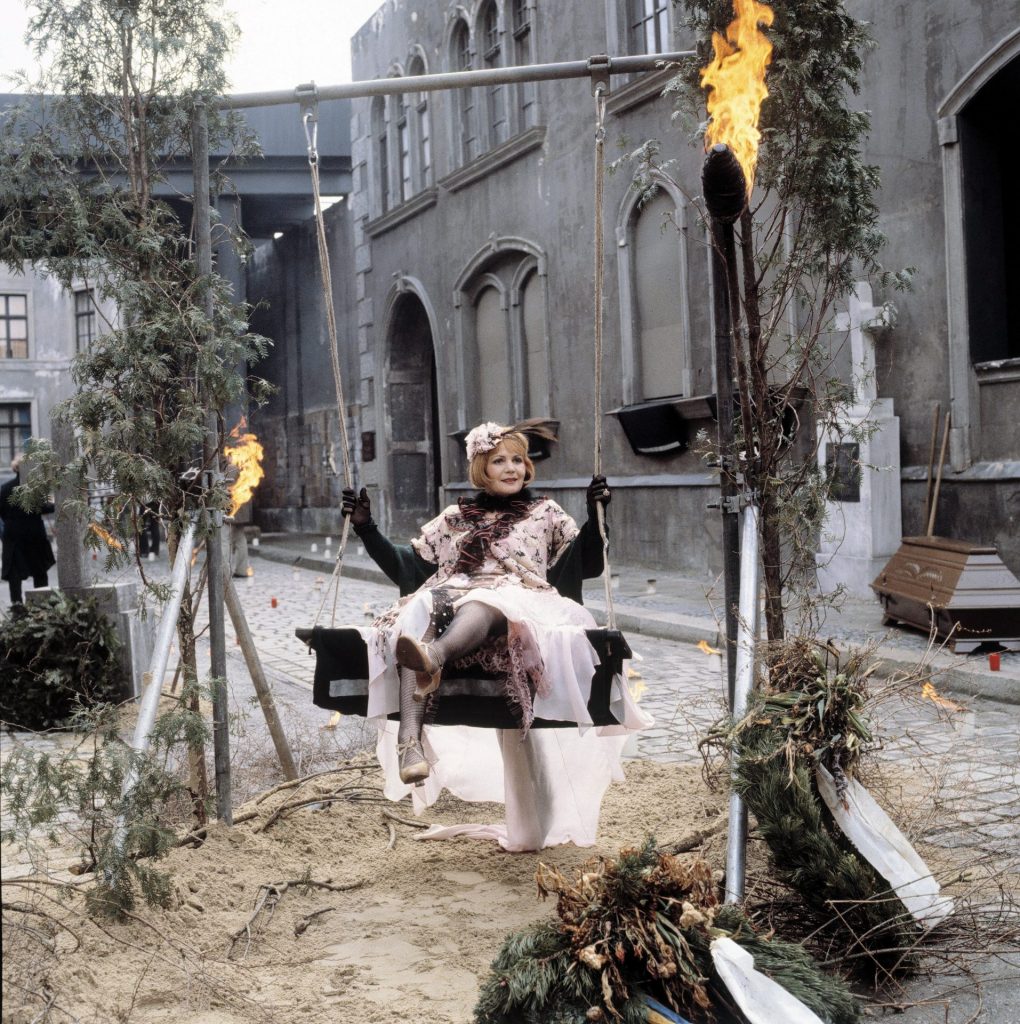
1980
Berlin Alexanderplatz, Rainer Werner Fassbinder’s epic 14-hour TV series, is broadcast to huge acclaim
1981
Klaus Maria Brandauer is hailed around the world for his starring role in Mephisto
1982
Christian Democrat Helmut Kohl becomes chancellor
1984
Katarina Witt wins gold in both the Olympic and World figure skating championships
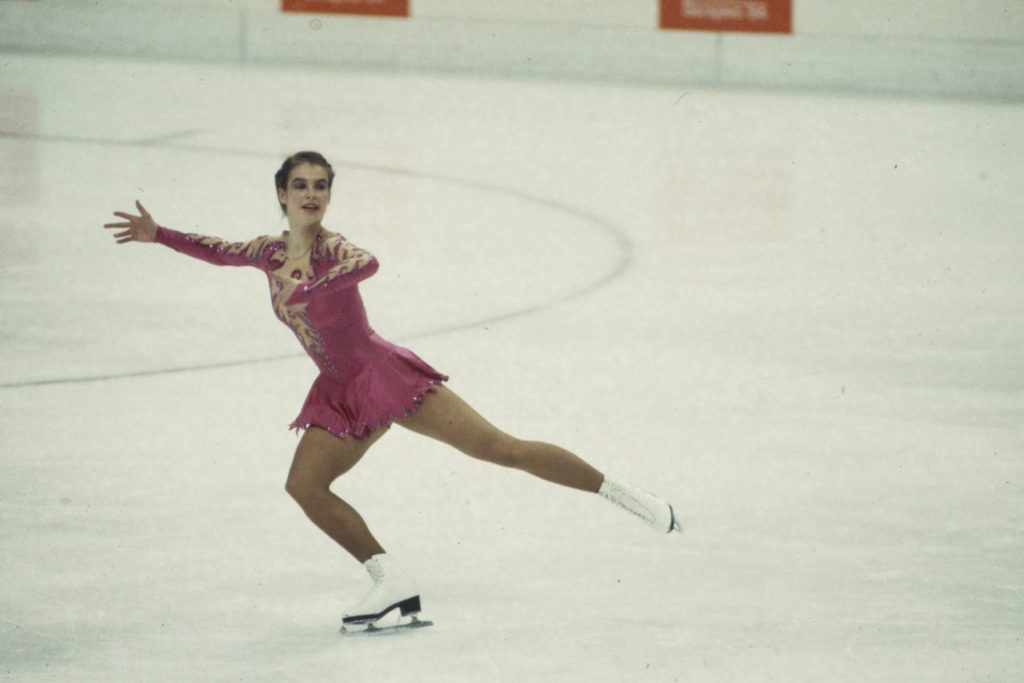
1985
Unseeded 17-year-old Boris Becker wins the Wimbledon men’s singles
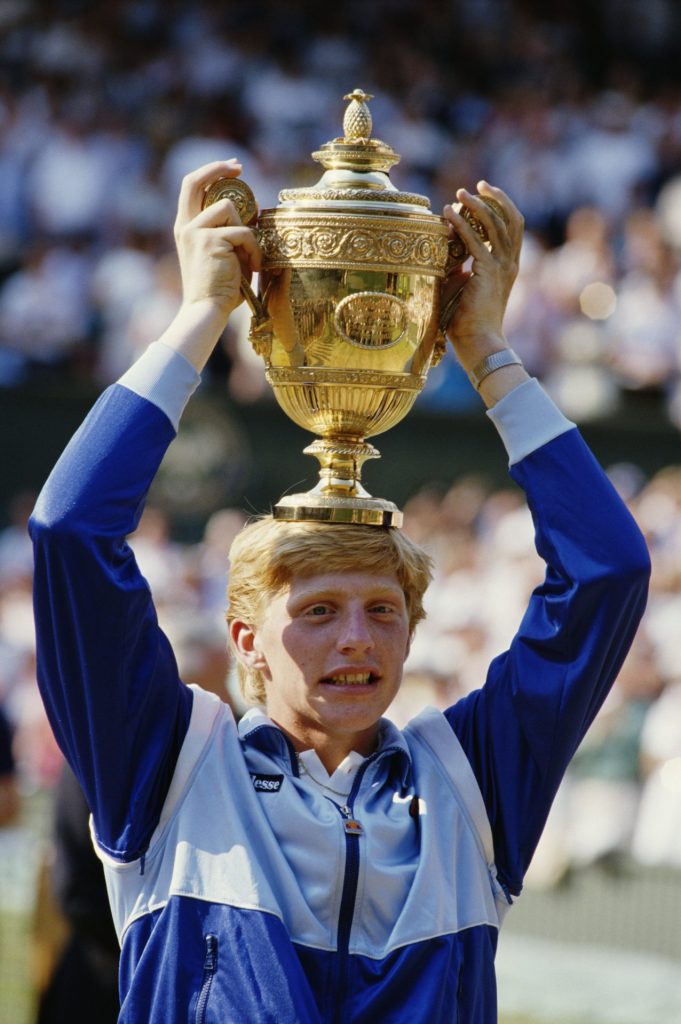
1987
Honecker pays first official visit to West; 1987 former West Berlin resident David Bowie returns to perform a concert near the Reichstag. Huge crowds gather on the East side to listen. Claudia Schiffer is spotted and signed by a top US model agency
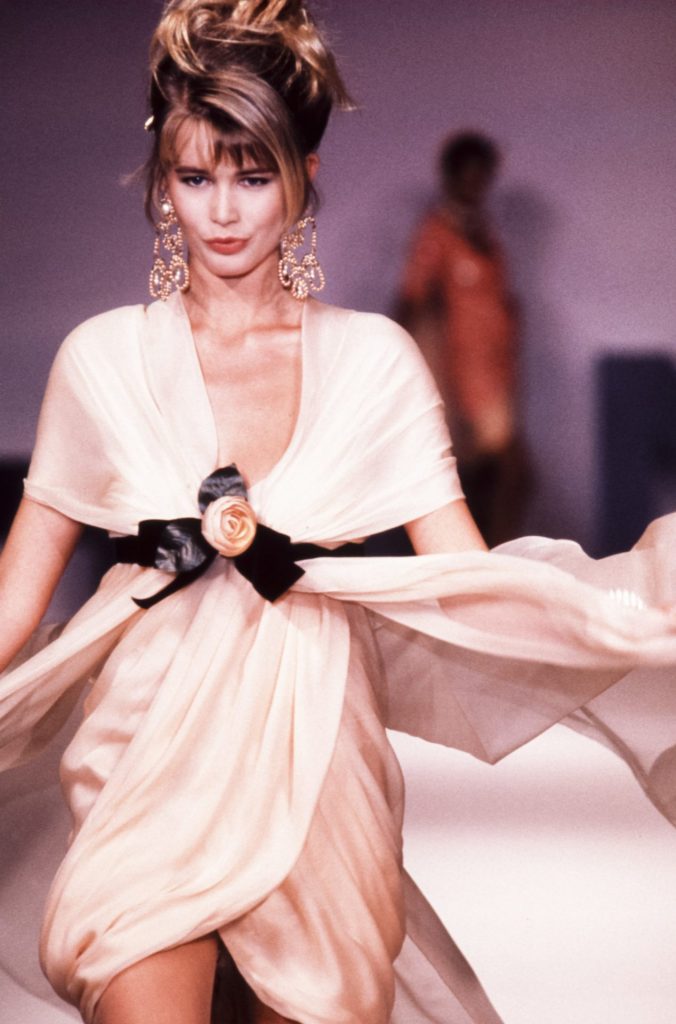
1988
Steffi Graf wins the ‘golden slam’ – all four majors and Olympic gold in a single year
1989
Mass exodus of East Germans as neighbouring Soviet bloc countries
relax travel restrictions. Protests across East Germany lead to rapid collapse of communist rule. Germans from East and West tear down Berlin Wall. In other news.. as German techno goes overground, DJ Dr. Motte launches the first Love Parade in Berlin, attended by just 150 people. A hard drive fails on stage at a gig by Frank Farian’s Grammy-winning soul act Milli Vanilli, revealing that they do not sing in their own records
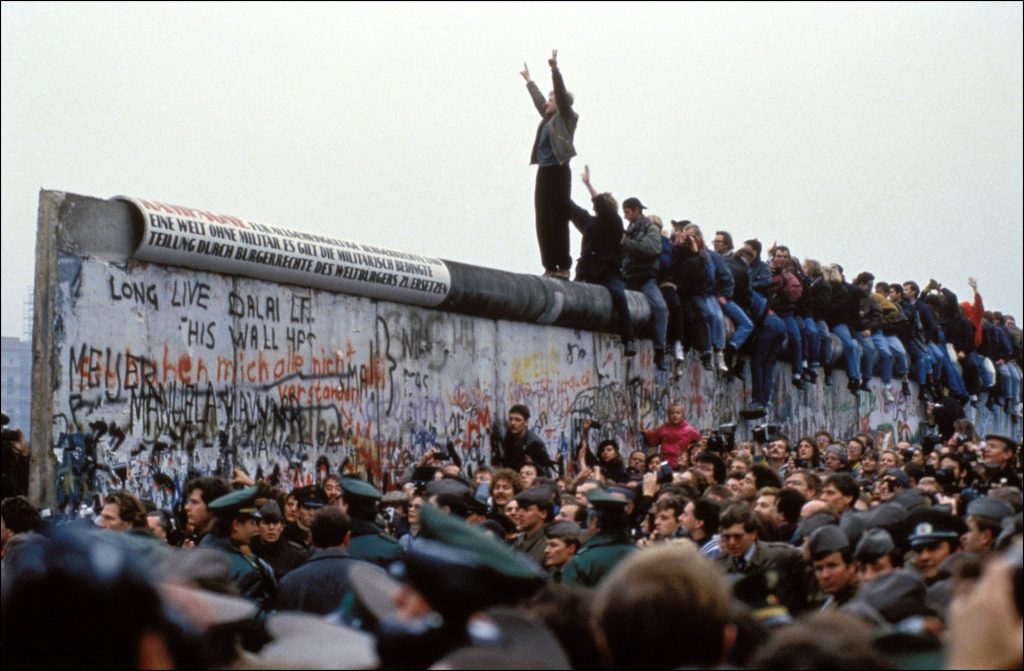
1990
Germany is reunited, with the former GDR becoming part of the Federal state. For political and diplomatic reasons, West German politicians avoided the term ‘reunification’ for what Germans frequently refer to as die Wende, ‘the turning point’
1991
The Scorpions’ Wind of Change sells the first of 14m copies worldwide; 25,000 women enter a contest to find a German supermodel, won by Heidi Klum
1992
Michael Schumacher records the first of his 91 Grand Prix wins. He goes on to win seven world championships
1998
General election victory for Social Democrat Gerhard Schroeder leads to a coalition with Greens
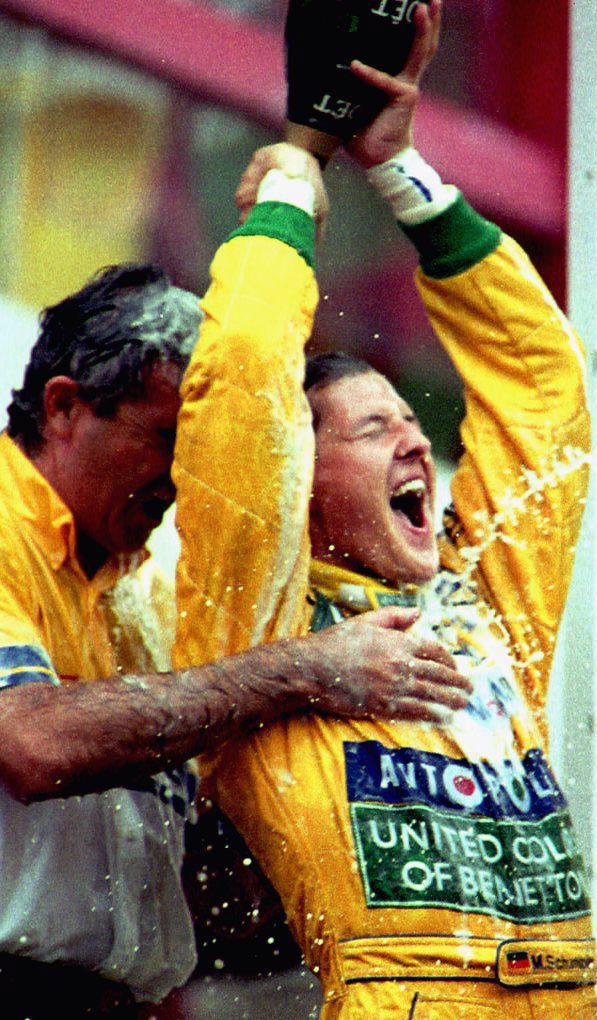
2001
WG Sebald publishes Austerlitz in November, dying a few weeks later
2002
Euro replaces Deutsche Mark; singer/actor Herbert Grönemeyer releases Mensch, the best-selling album in the country’s history
2003
Film-maker Wolfgang Becker releases Good Bye Lenin!, a tragicomedy about an East German son who conceals the fall of communism from his mother when she emerges from a coma
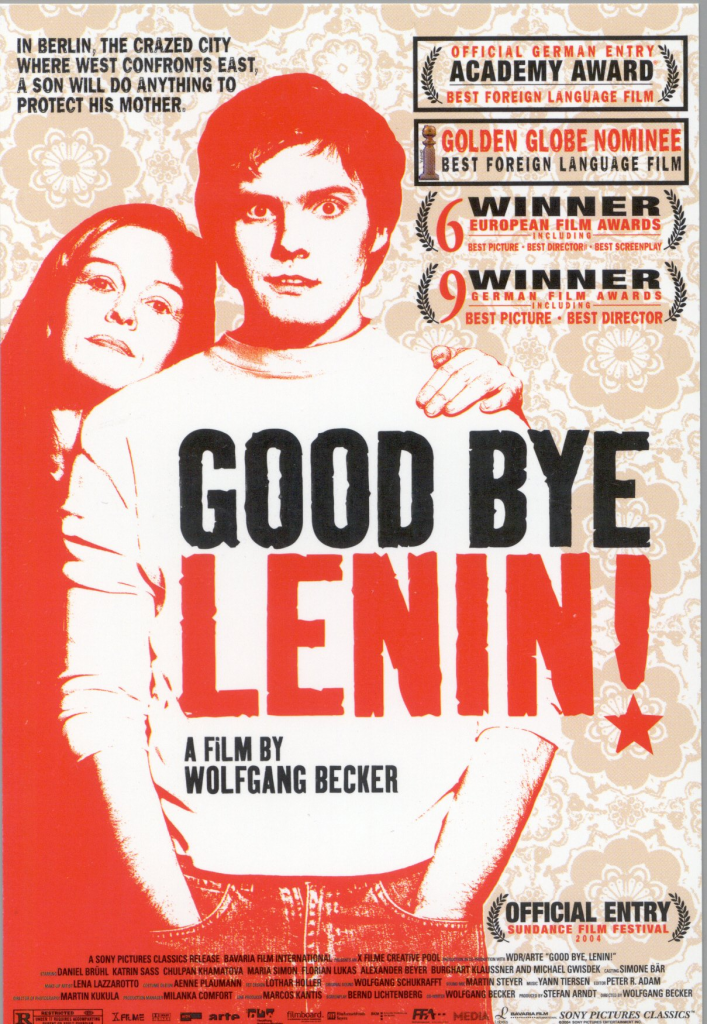
2005
Christian Democrat Angela Merkel becomes chancellor in a ‘grand coalition’ with Social Democrats
2007
The Lives of Others, Florian Henckel von Donnersmarck’s movie about Stasi surveillance, wins best foreign-language film at the Oscars
2010
Germany’s 22.4bn euro bail-out to debt-ridden Greece prompts widespread public anger. A second huge bail-out follows
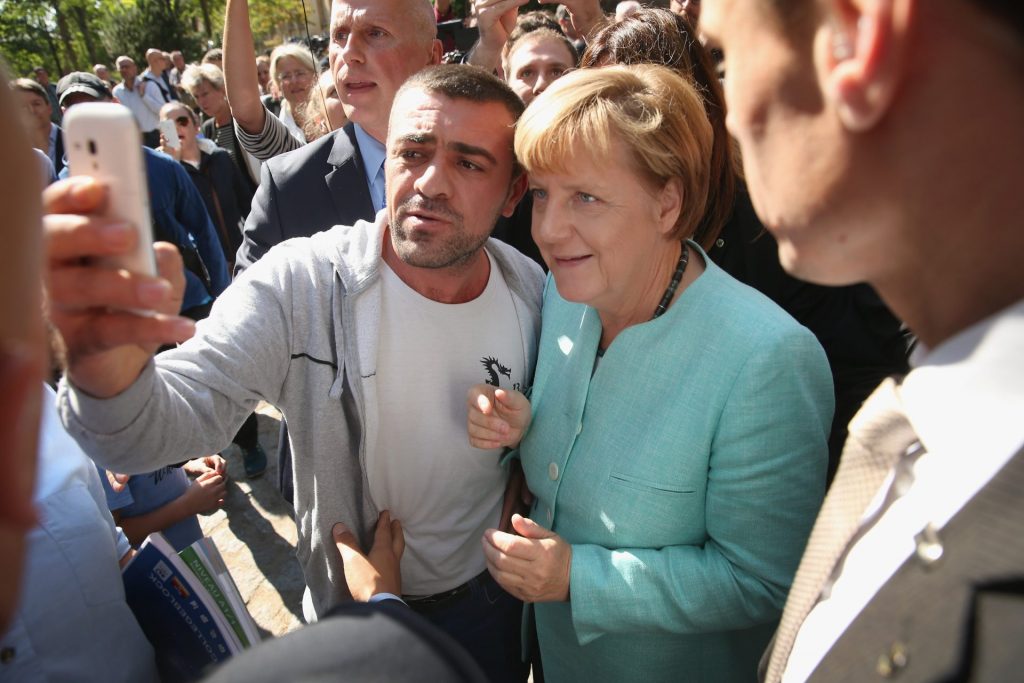
2015
Merkel responds to the migrant crisis by allowing more than a million refugees into Germany, saying: “Wir schaffen das” – “We can do this!”
2016
Tunisian migrant Anis Amri kills 12 people by driving a hijacked lorry into a crowded Berlin Christmas market
2017
First series of Weimar Republic-set police drama Babylon Berlin – the most expensive TV series in German history
2021
Germany elects its first new leader after 16 years of Merkel’s reign

